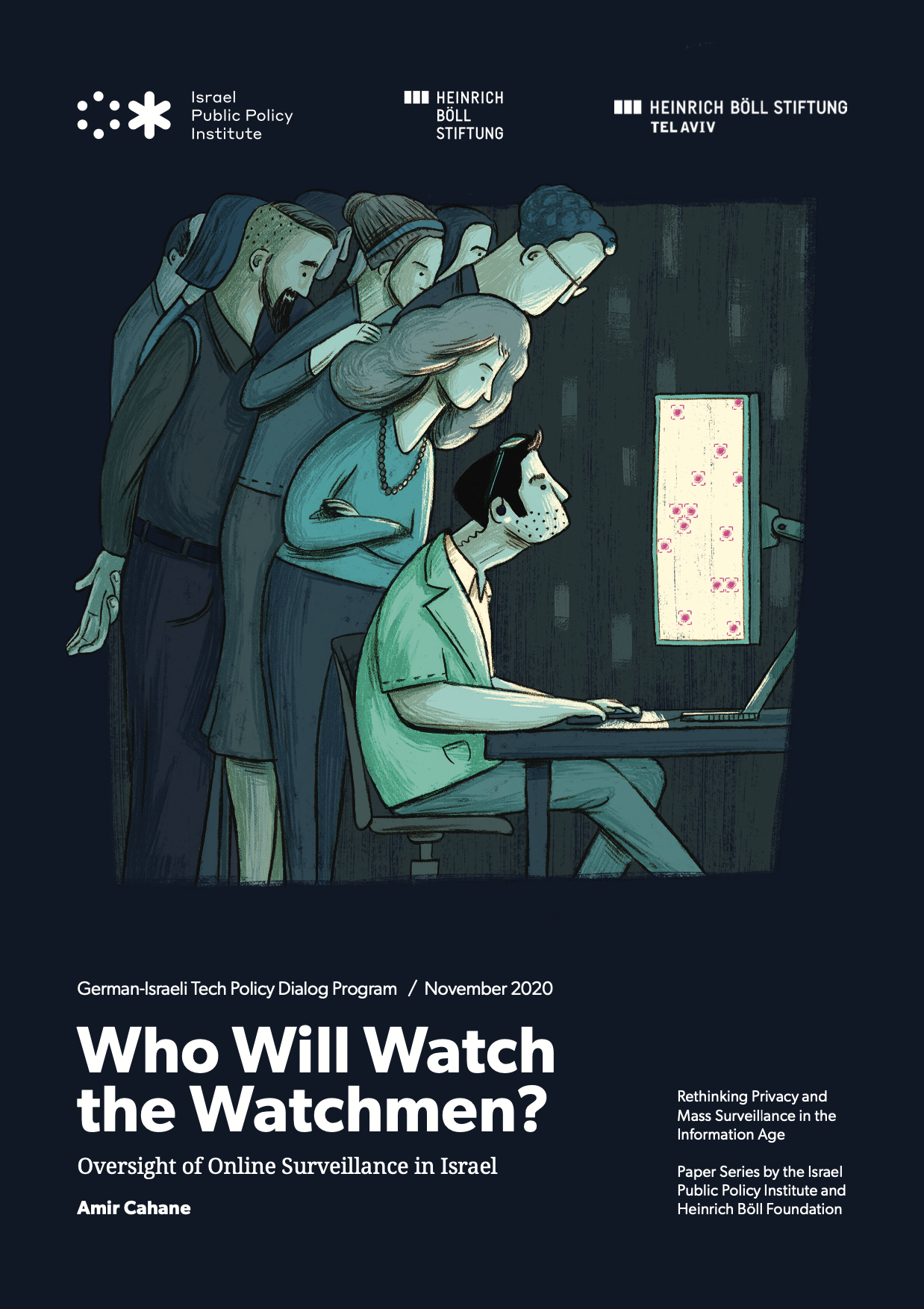Who Will Watch the Watchmen? Oversight of Online Surveillance in Israel

Share this Post
Among the initial Israeli responses to the COVID-19 pandemic was the harnessing of counterterrorism surveillance measures used by the Israel Security Agency (also known as the ISA, GSS, “Shin Bet” or “Shabak”) for coronavirus location tracking purposes. Israel was the only western country to publicly use its domestic security service to surveil its citizenry to ward off the crisis.
ISA coronavirus surveillance has brought into the limelight the “Tool,” a database to which the service has been secretly siphoning communications metadata for nearly twenty years. The public parliamentary deliberative process and the juridical proceedings pertaining to the design of the legal framework authorizing the ISA to use the Tool for purposes beyond its statutory remit, provided us with a rare opportunity to examine the workings of the Israeli online surveillance oversight array.
Overall, it appears that since the spread of COVID-19, parliamentary oversight has managed to advance a more nuanced legal framework for ISA surveillance, adding controls and safeguards against human rights infringements. Judicial review of the framework at its early stages contributed to anchoring it in a statutory form, rather than in emergency regulations, thus ensuring enhanced parliamentary scrutiny. However, by focusing on the question of whether ISA coronavirus location tracking was necessary, the parliamentary oversight did not manage to promote alternative measures that would have entailed significantly fewer infringements.
Both the judicial review and parliamentary oversight have focused mainly on policymaking and designing the legal framework for ISA coronavirus surveillance. The attempt to introduce supervisory aspects of oversight – ensuring legal compliance and adherence to human rights standards on a routine basis – was less successful.
The lessons learned from Israeli SIGINT oversight during the COVID-19 crisis stress the importance of expertise and data-driven policymaking, as well as the significance of public participation by civil society actors and of transparency – both of which contribute to the enhancement of public trust in the ISA and, by extension, in other intelligence agencies. Finally, the shifting positions reviewed in this paper of the parliamentary oversight subcommittee regarding the necessity of alternative measures to ISA coronavirus location tracking can serve to indicate that proper SIGINT oversight should be independent of external political influences, stressing the need for a dedicated independent expert body tasked with the daily overseeing of SIGINT activities.
————————————————————————————————————————————————–
The Israel Public Policy Institute (IPPI) serves as a platform for exchange of ideas, knowledge and research among policy experts, researchers, and scholars. The opinions expressed in the publications on the IPPI website are solely that of the authors and do not necessarily reflect the views of IPPI.
Download Full Publication
Policy Paper - Who Will Watch the Watchmen? Oversight of Online Surveillance in Israel

Share this Post

Disrupted Democracies: A Multistakeholder Approach to Fight Disinformation
Who’s responsibility is social media platform regulation? Personal data has been utilized in an unregulated environment throughout the…

The Promise of Green Hydrogen: The Future of the Global Energy Transition?
Green hydrogen is a zero-emission alternative to fossil fuels, produced by using renewable electricity to split hydrogen from…

Energy security and affordability in the European Union
Introduction Energy systems can be understood as complex adaptive systems with interconnected, heterogeneous elements; given the complexity of the social…
